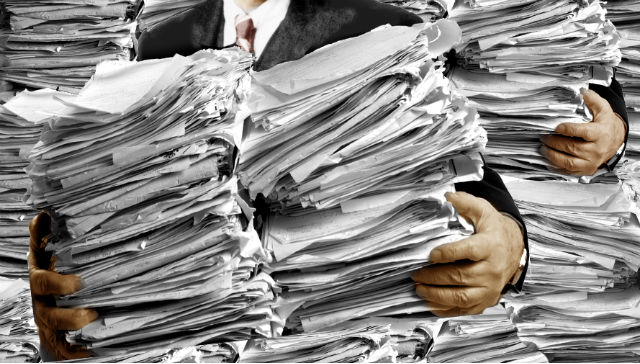Hot on the heels of bringing in the 'right to make mistakes', the French government has now launched a new website designed to help people filling in official forms.
The new 'Oups.gouv.fr' website offers a guide through the often confusing world of filling out forms, plus a section on common mistakes to avoid.
“For once, the French administration is well aware of its complexity,” a ministerial adviser told Europe 1 radio. “We have done everything to make it clear and educational.”
READ ALSO The revolution in French bureaucracy that you need to know about
Of course French people too find filling out official forms difficult, but it is especially hard when French is not your first language and the wording on the forms themselves is often highly technical and complex.
The government says the new site aims to “improve relations between the public and the administration.”
It's main aim is to highlight the most common mistakes members of the public and professionals make when dealing with paperwork and explains to users how the can be avoided.
It offers guidance on some of the most common declarations that people have to make, from declaring your income for your tax return to claiming benefits or a pension or registering the birth of a child.
With a simple layout and straightforward design it is also easy to navigate, unlike some other French government online portals, and there is even a video where an earnest young man explains some of the most common mistakes people make when filling out the forms.
It's the latest move by the government in an ongoing effort to detoxify the image of the French bureaucracy, which includes last year's introduction of the official right to make a mistake on a French form.
The new law was part of President Emmanuel Macron's election manifesto and was designed to thaw the often frosty relationship the French have with their bureaucrats.
The crucial difference is that people will no longer be subject to financial penalties if they make an honest mistake on their forms, instead it will be up to the authorities to prove malicious intent.
So for example if you tell the tax man that you live alone but you actually live with your partner that will still be seemed as fraud, but if you incorrectly calculate a certain section of your tax return, you won't automatically be fined.
The exemption does not apply to missing deadlines for filing things like tax returns, however.
To check out the new website, click here.



 Please whitelist us to continue reading.
Please whitelist us to continue reading.
Member comments